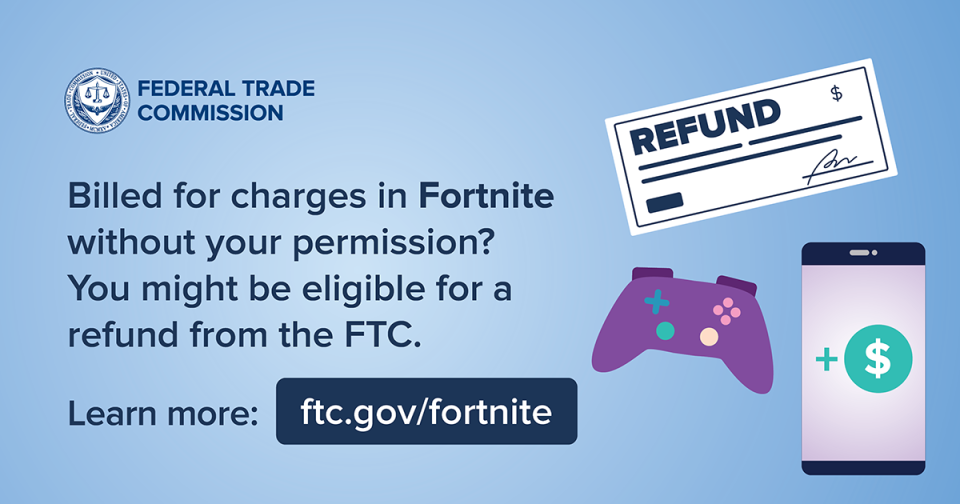These days, video games have shops just like online stores. Games like Fortnite, developed by Epic Games, sell gear, character “skins,” and dance moves. (Think Darth Vader wielding an umbrella and flossing.) But what if the game saved your payment info (without asking you first), didn’t give you the chance to confirm purchases, made it hard to cancel them, and locked you out of the game if you tried to dispute the charge?
 That, says the FTC, is what happened to some Fortnite players and parents. If you bought something in Fortnite, you might not have known that Epic saved your payment information. Or known that your kids could buy things – hundreds of dollars of in-game things – without you confirming their purchase, according to the FTC. And, says the FTC, Fortnite’s setup was so confusing that millions of players were charged for items they didn’t want.
That, says the FTC, is what happened to some Fortnite players and parents. If you bought something in Fortnite, you might not have known that Epic saved your payment information. Or known that your kids could buy things – hundreds of dollars of in-game things – without you confirming their purchase, according to the FTC. And, says the FTC, Fortnite’s setup was so confusing that millions of players were charged for items they didn’t want.
Even worse, Epic made it difficult or impossible to cancel charges, and if you tried to dispute a charge with your credit card company, you might have found yourself unexpectedly and permanently locked out of Fortnite. You know, the game where you might have just spent hundreds of dollars without your knowledge or permission. That also meant you’d lose access to all the content you actually wanted and paid for — simply because you disputed a charge.
Thanks to a settlement with the FTC, Epic now has to make sure players and parents confirm purchases. They can’t lock you out of the game for disputing charges. And Epic also has to pay $245 million to those they unfairly charged or locked out of a Fortnite account. Visit ftc.gov/fortnite for more information about refunds, and sign up for email updates from the FTC.
But that’s not all — while this settlement with the FTC could protect your wallet, another Epic settlement with the FTC could protect your privacy. Keep reading.





Comments